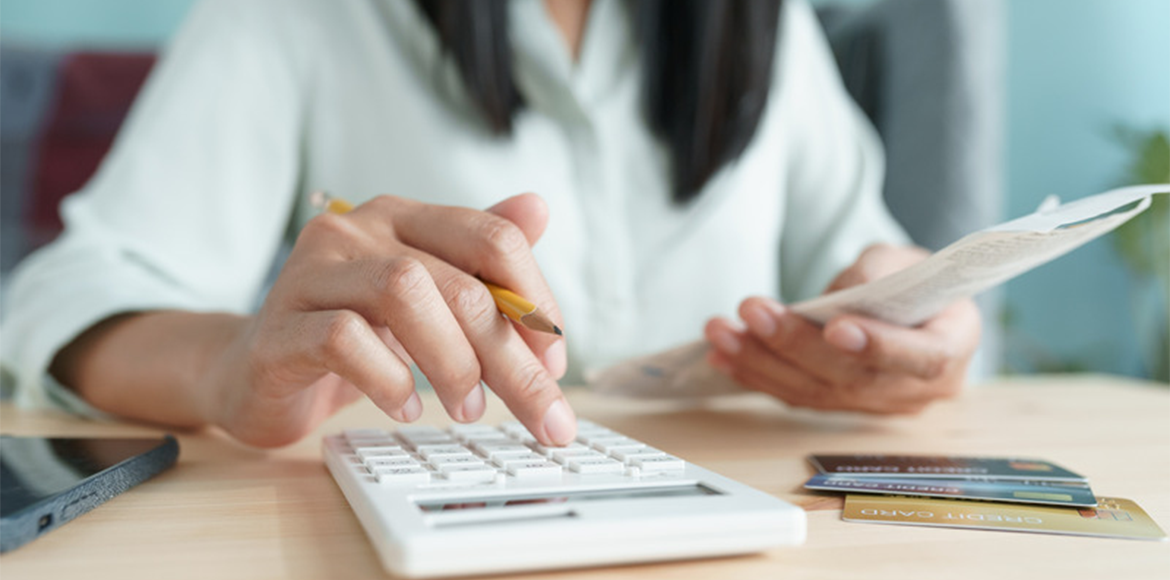Top 5 Tips to Emergency-Proof Your Finances
Tip #1. Organize Financial Information
Gather your financial information in one central location. Whether it is a physical folder or coordinated on your computer, organize your:
- Expenses
- Income
- Future financial needs
Looking at your finances as one big picture will help you figure out how much money you have, understand how much money you need to set aside each month for bills and expenses, and most important, set up a plan to meet your financial goals.
Resources
Tip #2. Assess Your Budget
It is always beneficial to periodically take a fresh look at your monthly income and expenses. Every few months, do the following:
- Total up your monthly take-home income to find out what you have to work with.
- Categorize your expenses into:
- Essentials: bills you have to pay, like housing, food, utilities, medicine and debt
- Non-essentials: things you could defer or things you could go without, such as entertainment, subscriptions, restaurant meals, and so on.
Subtract your total expenses from your take-home income to find out what you have available to devote to savings.
If you need more information on creating a budget, download our spending plan worksheet to get started. Use this worksheet to calculate your monthly expenses and income to get an idea of what you have to work with, what your commitments are, and what you have remaining to devote to your goals.
Resources
Tip #3. Build an Emergency Fund
Cash savings are a lifeline for minimizing the effect of income interruptions, unpredicted expenses, or other financial setbacks. An emergency savings account offers you peace of mind, and — when a setback happens — allows you time to figure out a longer-term solution.
Most experts suggest setting aside enough emergency savings to cover three months of expenses – but getting started with any amount will help. You can set a mini-goal to cover two weeks, or one month of expenses, and build from there.
And remember, even if you don’t have an emergency savings account in place yet (and nearly 1/3 of us don’t), any emergency savings lets you prepare for or recover from an unexpected setback. Think of your emergency savings as preventive medicine and first aid.
Resources
Tip #4. Manage Expenses
Your expenses can be prioritized. The first step is to organize your expenses by priority and pay most important, essential bills first. The main bills you should pay first are grocery/food, child care, and essential medicine as well as housing. GreenPath offers a complete list of how to prioritize your expenses.
After you have priority bills in order, take a closer look at non-essential expenses and see what you could live without to free up more money for your emergency fund. This can include temporarily canceling subscriptions or deferring a non-essential purchase until you reach that savings goal. Cutting back on non-essential expenses will help you reach your savings goal.
You should also audit your essential spending to find places to save. You can shave dollars off of your grocery bills, energy costs, entertainment and transportation costs to redirect to savings.
Resources
Tip #5. Get Debt Under Control
A key to emergency proofing your finances is paying off all debt.
Paying off your debt isn’t always easy, but having a plan can go a long way in achieving your financial goals. Two of the most popular strategies for paying off debt on your own are the snowball method and the avalanche method. You can choose the method that works best for you.
It is important to note that paying the minimum amount on your credit card bill is more expensive overall because you end up paying more in interest and fees. More proactive strategies for paying off debt quicker is working to lower your interest rate.
Another option is to temporarily divert money to your emergency fund and pay less toward debt so that your emergency fund grows quickly.
Resources
GreenPath Can Help You Pay Off Credit Card Debt Faster
If you would like more one-on-one assistance, GreenPath Financial Wellness counselors are available to help you achieve financial health. We can help you gain a better understanding of your spending habits, and we can help you create a plan to pay off your credit card debt.
Call today for a free financial counseling session. It’s free, confidential and no pressure!
Resources for Budgeting & Managing Debt

Spending Plan Worksheet
Spending Plan Worksheet
Figuring out where your money goes is a great step toward financial freedom. Get a Spending Plan WorksheetGet a Spending Plan Worksheet to improve your overall financial picture, and plan to meet financial goals.
5 Reasons to Budget
5 Reasons to Budget
Why does making a simple household budget help reduce financial stress? See five compelling reasonsSee five compelling reasons to get your budgeting going. Even starting with a simple budget can help in a big way.

Managing Money Questions
Managing Money Questions
Asking questions can be a great way to gain wisdom and insight. Get the answersGet the answers to some of the most common questions people have about figuring out their finances.
Free Financial Counseling
Free Financial Counseling
As a national nonprofit focused on financial wellness, certified, compassionate financial experts are ready to talk with you. Meet your financial goalsMeet your financial goals, with a clear path to financial wellness.
Free Financial Courses
Free Financial Courses
From saving for an emergency to managing debt, visit the GreenPath LearningLabvisit the GreenPath LearningLab for interactive educational experiences and important insight.
GreenPath Has Been Helping People Pay Off Debt for Over 60 Years
Sometimes emergencies hit, or life can throw us a financial curve ball, such as an unexpected job loss or medical expense. Having options is important, since preparing for unforeseen circumstances can mean the difference between a financial disaster and a minor setback.
Resources to Stay Financially Healthy
If you want more options to pay off your debt, check out these resources to learn about debt management programs, balance transfers, debt consolidation, and more.
Get Smart About Credit
Get Smart About Credit
If you are dealing with credit card debt, you aren’t alone. Paying off your balances is possible with a little planning. In fact, a plan can go a long way toward achieving your financial goals. See 7 tipsSee 7 tips to address and manage credit so it works for you.

Is Cash Advance Right for You?
Is Cash Advance Right for You?
A credit card cash advance is tempting, especially in the face of unexpected emergencies. Cash advances can be convenient but it’s important to understand the downside. Read about the key considerationsRead about the key considerations before taking a cash advance.

Free Financial Courses
Free Financial Courses
Figuring out where your money goes is a great step toward financial freedom. And it’s a good way to manage credit card debt. Download the Aligning Priority Workbookthe Aligning Priority Workbook to help you understand monthly budgeting, and how to plan to meet financial goals.





